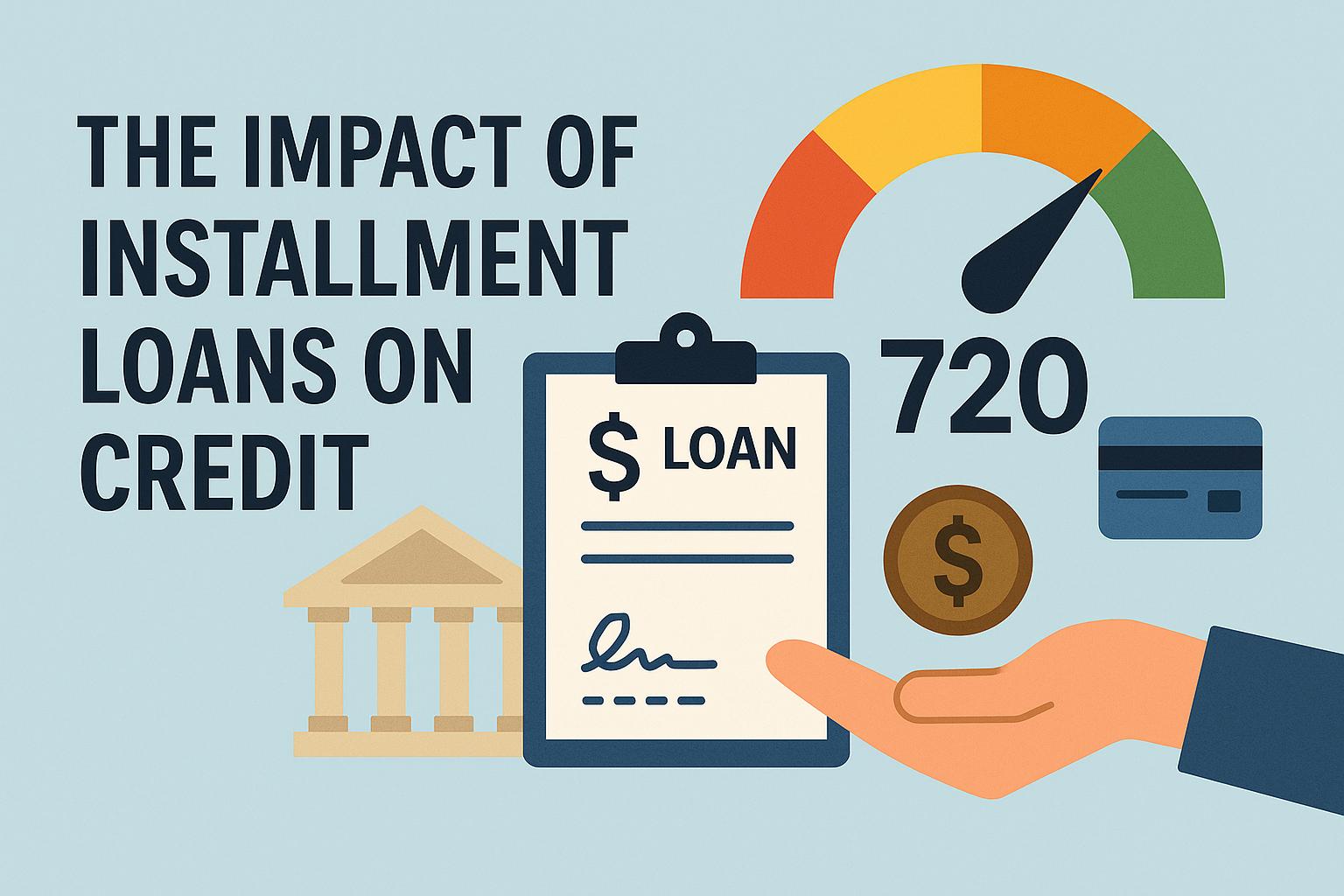
The impact of installment loans on credit.
Understanding Installment Loans
Installment loans represent a fundamental aspect of personal finance, offering a structured approach to borrowing money. These loans require the borrower to repay the loan amount in established sums over a fixed period. The mechanics of installment loans are straightforward, but the terms can widely vary. Borrowers may encounter differing timelines for repayment, interest rates, and the total amounts they are eligible to borrow. Among the most prevalent forms of installment loans, you’ll find personal loans, auto loans, and mortgages. Each of these serves unique purposes, catering to various financial needs while sharing the common feature of installment-based repayment.
How Installment Loans Work
At its core, an installment loan involves the disbursement of a fixed sum of money that must be paid back over a predefined duration. The repayment plan is structured so that each installment payment reflects a combination of both a portion of the principal—the original amount borrowed—and the interest accrued over time. These payments are made on a regular schedule, which continues until the full loan amount, including interest, is completely repaid.
The specific terms of installment loans, such as the interest rate and the length of the loan, are influenced by multiple factors. These include the borrower’s credit score, the amount of the loan itself, and the lender’s specific policy framework. Therefore, it is critical for borrowers to fully understand their loan terms before proceeding. Knowing how different components affect the total cost of borrowing helps borrowers plan their financial commitments more effectively.
Impact on Credit Score
Payment History: A borrower’s payment history is a crucial element of their overall credit score. Timely repayments on installment loans contribute significantly to a positive payment history. This is due to the way credit bureaus weigh consistent, on-time payments. Over time, this pattern of reliability in managing loan repayments builds a stronger credit profile. A positive payment history signals financial responsibility to creditors and can make obtaining future credit easier and potentially cheaper.
Credit Mix: The variety of credit types a borrower handles also plays a role in influencing their credit score. Lenders view a portfolio consisting of multiple credit types, such as installment loans and revolving credit (like credit cards), as indicative of a borrower’s ability to handle different financial responsibilities. A well-rounded credit mix can enhance a credit score by demonstrating the borrower’s capability to manage various credit forms effectively.
Debt-to-Income Ratio: The debt-to-income ratio (DTI) is another significant measure that lenders use to assess financial health. Installment loans add to the total debt burden, but when managed properly, they can oddly enough, improve the borrower’s DTI. This is because a fixed repayment schedule can make it easier for borrowers to plan their finances. Lenders generally favor a lower DTI, interpreting it as a sign that the borrower has more reliable income relative to their debt obligations.
Considerations When Taking an Installment Loan
Before committing to an installment loan, it is paramount that borrowers thoroughly evaluate the comprehensive cost associated with it. This evaluation should take into account not only the interest rates but also any other applicable fees that might be attached to the loan. Only by calculating the total cost can borrowers understand the financial commitment they are making.
Consideration should also be given to the borrower’s capacity to adhere to the payment schedule without compromising their financial well-being. Borrowing beyond one’s means can lead to financial stress, making it difficult to maintain on-time payments—this, in turn, risks damaging the borrower’s credit score.
Furthermore, it’s wise to carefully review the lender’s terms and conditions. It’s essential to fully understand any penalties that can be incurred by making late payments or defaulting on the loan. Such penalties can not only lead to additional financial burdens but can also detrimentally impact a borrower’s credit profile.
Further Resources
For individuals seeking to enhance their understanding of how installment loans affect credit scores and broader financial health, numerous resources are available. It is beneficial to consult materials from financial regulatory bodies such as the Consumer Financial Protection Bureau. Additionally, obtaining guidance from financial advisors who can provide personalized advice tailored to one’s financial situation can be invaluable.
Grasping the complexities of installment loans and their potential impact on credit is a crucial component of making informed financial decisions. When borrowers manage these loans prudently, they can strengthen their credit scores while simultaneously addressing their financial needs. Such a strategy supports long-term financial stability and can facilitate better access to credit products in the future. By approaching installment loans with a clear understanding and careful planning, borrowers lay the groundwork for sound financial management and opportunity.
